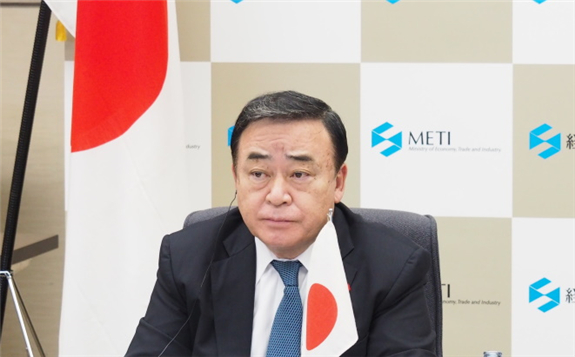
Prior to the March 2011 accident at the Fukushima Daiichi plant, Japan's nuclear generating capacity had provided around 30% of the country's electricity. However, within 14 months of the accident, the country's nuclear generation had been brought to a standstill pending regulatory change. So far, nine of Japan's 39 operable reactors have cleared inspections confirming they meet the new regulatory safety standards and have resumed operation. Another 18 reactors have applied to restart. In 2019, nuclear energy provided just 7.5% of the country's electricity.
Japan's Basic Energy Plan, set in 2018 and due for revision this year, targets 22-24% of its energy to come from renewables by 2030, along with 20-22% from nuclear power and 56% from fossil fuels.
In his interview with the Financial Times, published yesterday, Kajiyama said: "Personally, I think nuclear power will be indispensable." He described Japan's electricity supply as "touch-and-go" during heavy snowfall last month, which resulted in high electricity prices and tight supplies in some areas of the country. "Solar wasn't generating. Wind wasn't generating. I'm trying to persuade everybody that in the end we need nuclear power."
Analysis by the Ministry of Economy, Trade and Industry (METI) has shown it will be hard to supply more than 60% of Japan's electricity needs from renewable energy sources.
Referring to the country's lack of flat, empty land for solar panels and the deep oceans that surround it, Kajiyama said: "Japan's geographical constraints mean it is not as easy to introduce renewables as in Europe or North America."
In a policy speech to the country's parliament on 26 October last year, newly-elected Prime Minister Yoshihide Suga declared Japan will aim to reduce greenhouse gas emissions to net zero by 2050. This will involve an increase in the share of renewables to 50% by 2030, he said.
"My administration will devote itself to the greatest possible extent to bring about a green society, while focusing on a virtuous cycle of the economy and the environment as a pillar of our growth strategy," Suga said. "Addressing climate change is no longer a constraint on economic growth. We need to adjust our mindset to a paradigm shift that proactive climate change measures bring transformation of industrial structures as well as our economy and society, leading to dynamic economic growth."
He added, "We will establish a stable supply of energy by thoroughly conserving energy and introducing renewable energies to the greatest possible extent, as well as by advancing our nuclear energy policy with the highest priority on safety. We will also drastically change our longstanding policies on coal-fired power generation."
Japan will need nuclear power if it is to realise the government's carbon neutrality goal and should therefore restart idled nuclear reactors as soon as possible, as well as work to extend their operating lifetimes and build new nuclear capacity, the heads of the Japanese Atomic Industry Forum and the Japan Iron and Steel Federation said in separate New Year messages.